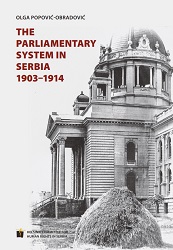
We kindly inform you that, as long as the subject affiliation of our 300.000+ articles is in progress, you might get unsufficient or no results on your third level or second level search. In this case, please broaden your search criteria.

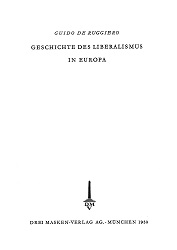
The present German edition of my work follows the Italian original edition with a time shift of five years. However, I hope the book will not be out of date. I could not make up my mind to make changes in the text, not even where the presentation could appear to have been corrected by recent political experiences, for instance on the last pages of the chapter on Italy. After all, it was not my intention to write a book that was merely “topical”: not the political report of the day, but only the story itself, I believe, will be able to correct or confirm my theses after a more comprehensive and calm process. Various difficulties had to be overcome in organizing the translation. I would like to thank the publisher for the care that it has put into it.
More...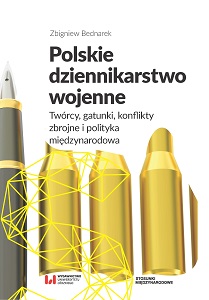
The publication is part of the study of international relations in the context of their relations with the media and journalists, especially war journalism. The historical and political background of wars outlined in the publication, combined with the analysis of journalistic presentations of wars, reveals a point of contact between international politics and societies and the media. In the monograph, each time outlining the political and historical background of wars, over 40 journalistic war reports published in book form were analyzed, from 9 wars, conducted since 1918 until the beginning of the 21st century, in various parts of the world (Europe, Africa, Indochina, the Caucasus, the Balkans, Iraq, Afghanistan). In addition, the study presents the work of journalists during the war over the years, the tradition of war relations since antiquity and its status in global journalism, the definition and typology of war correspondents, and issues of sources, professional ethics, documentary value of reports, as well as war propaganda and ways of influencing the recipients. A significant amount of space in the work is devoted to military announcements and reports from the Polish-Bolshevik war to the peace mission and stabilization mission at the turn of the 20th and 21st century, as well as the work of press officers of the Polish Army.
More...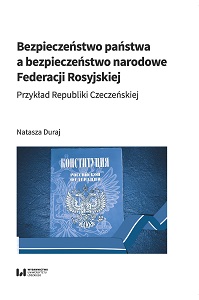
The main goal of monograph is to present the issues related to the place of state security in the national security system of the Russian Federation. The work attracted particular attention on legal and organizational solutions introduced in the autonomous entity of the Russian Federation – the Chechen Republic.The book consists of three main chapters, which were created on the basis of a critical analysis of the literature on the subject related to the issue of broadly understood security of the Russian Federation. The source material was also the Constitution of the Russian Federation amended in 2020, and the Constitution of the Chechen Republic adopted in 2003.In addition, materials from the General Prosecutor’s Office of the Russian Federation, the Ministry of Internal Affairs of the Russian Federation and the Federal Service for the Enforcement of Punishments were used in the work.
More...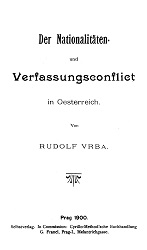
THE AUTHOR WAS CHARACTERIZED BY A CLEAR ANTI-SEMITIC ATTITUDE. IT IS INTERCONNECTED WITH HIS AUTHORITARIAN BELIEF THAT "MIGHT MAKES LAW" (SEE BELOW – GERMAN WORDING IS USING HERE »VIOLENCE« INSTEAD OF »MIGHT«). IN HIS PREFACE THE AUTHOR WAS WRITING: »Who is now in Austria-Hungary the main bearer of the unfortunate nationality dispute, which threatens to destroy the venerable old Habsburg Empire if disillusionment does not set in? Yes, the question would be solved soon. If the Czecho-Slavs would submit, renounce their language, adopt the German state language; in, in Austria, one would prefer to proceed like the Prussians with the Poles, the Magyars with the Slovaks, Romanians, the English with the Irish, the Italians with the Serbo-Croats and Slovenes — then the dispute would soon be settled, violence before the law. The nationality quarrel could not possibly have assumed such dimensions if Austria were not so richly blessed with the Jewish press, Austria's curse. This wretched press is Austria's greatest misfortune. The evidence is provided by the Palacký celebrations on June 19, 1898, held in Prague.«
More...
None of the great nationalities of Austria can secure the existence of the monarchy on its own, but each of them can endanger the empire through their resistance. Each of them can individually intervene in a destructive way, but only all of them together can act constructively. If government, representatives of the people and journalists, both on this side and on the other side of the Leitha, always keep this truth in mind in their decisions and work, Austria will consolidate. If not, then not.
More...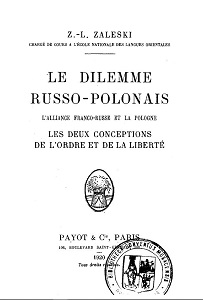
The present study on the “two conceptions of order and freedom” is based on a series of lectures given at the École des Hautes-Études sociales in December 1917, and at the École des Langues orientales during the next winter, in 1918. With my friend Bohdan Winiarski, professor of law at the University of Posen, who had arrived — or rather escaped — then from Petrograd, we wanted to talk to the French public about this old problem, Russia-Poland, which the events had just imposed themselves on universal attention with such dramatic violence. We thought it appropriate to attack some prejudices about Poland, commonly accepted in France: Polish anarchy, the lack of an organizing spirit, the inability to govern itself, the impossibility of creating a State, these, of course, are assertions all gratuitous, but which the propaganda of the co-partitioning States endeavored to spread with great skill and zeal. Worse still, French politics at the time also seemed not to completely disdain these pessimistic suggestions. (author’s introduction)
More...
The German East in danger! You don't lure a dog out from behind the stove with that these days. Too much danger surrounds us all. But what if it could be shown that there is more here than danger, that there is also the way to salvation? That here, in East Germany and its neighboring countries, where the European knot tightened so disastrously, is also the place to untie it? And in fact! This writing wants to show no less than this. She tackles the problem of Europe, the problem of the time, at the most sensitive and only seemingly remote point: in the problem of the East and its history. And really the problem of time. Not only a political or economic problem, but at the same time that of religion as well as that of stratification and history. Because all this belongs together, is an inseparable unit that is swung by the same pendulum. We shall have to speak of many things: of Baltic trade, of production and need, but also of Christ, of Rome and Byzantium.
More...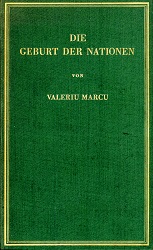
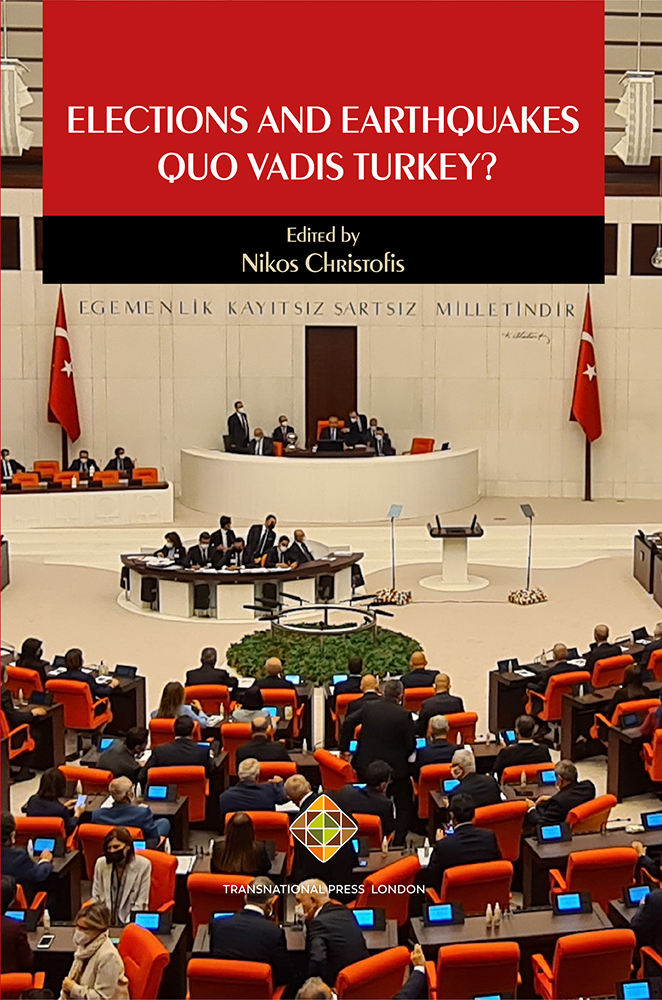
Where does Recep Tayyip Erdoğan’s resilience derive from? Why did he, and the AKP, win the double May 2023 elections again? How did the opposition perform? What were the opposition’s mistakes? How will domestic and foreign policy issues unfold after the elections?These are just a few of the questions the present collection tries to answer. Demonstrating how Turkey’s politics have developed the present volume brings together approaches from politics, sociology, and history, and sheds much-needed light on these crucial questions. They offer scholars and non-specialists alike a comprehensive overview of the implications of the recent elections in almost every aspect of Turkish society. Finally, the chapters that are hosted here provide informed deliberations about Turkey’s future."This collective volume sheds new light on the durability of the Erdoğan regime despite the heavy crises Turkey is going through, and more importantly, shows the limits of an opposition that is unable to propose a democratic transformation of the country, to become a credible alternative to it." - Prof. Hamit Bozarslan, EHESS, ParisThis timely collection features some of the sharpest voices in and on Turkey today, packaged in short, digestible chapters. Coverage includes the role of ideology, incumbent and opposition alliances, the economy, devastating earthquakes, minorities, youth, and relations with external actors like Greece and the European Union. The book will help students and experts alike to make sense of the multi-faceted causes and consequences of a milestone in Turkey's trajectory: 2023 elections and their implications for the country, its region, and the world. - Assoc. Prof. Nora Fisher Onar, University of San Francisco
More...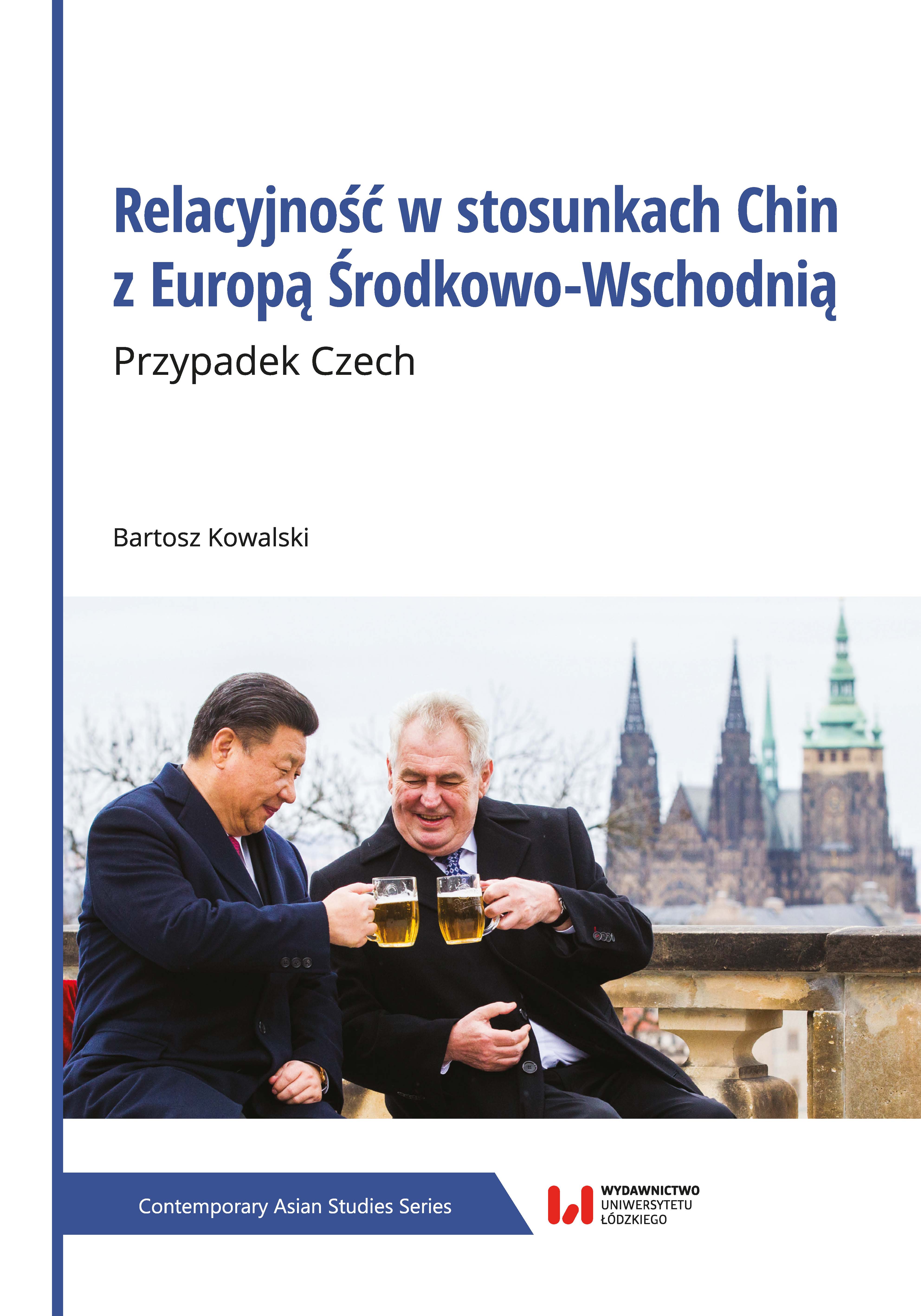
Applying relational theory, this book examines the case study of China’s relations with the Czech Republic to explain why China initially managed to build and then lost significant influence in the country. The author also presents the broader context of the changes that have taken place in China's relations with Central and Eastern European countries after 2012. The key element in understanding China’s relational approach to Central and Eastern Europe is the peripherality of the region in the perception of Chinese political elites and its inclusion to the net of China’s relations with developing countries (the Global South). Although Central and Eastern European countries have relatively little potential as economic partners for China, due to the presumably weak and exogenous nature of their democracy and the rule of law, they have been perceived as vulnerable to relational politics and building support for the Chinese political agenda. The author argues that the perception of the region as a peripheral area influences the foreign policy tools (including informality and elite capture) and political economy used by China towards developing countries.
More...
PROCEEDINGS INTERNATIONAL SCIENTIFIC CONFERENCE“STRATEGIES XXI” Volume XIX
More...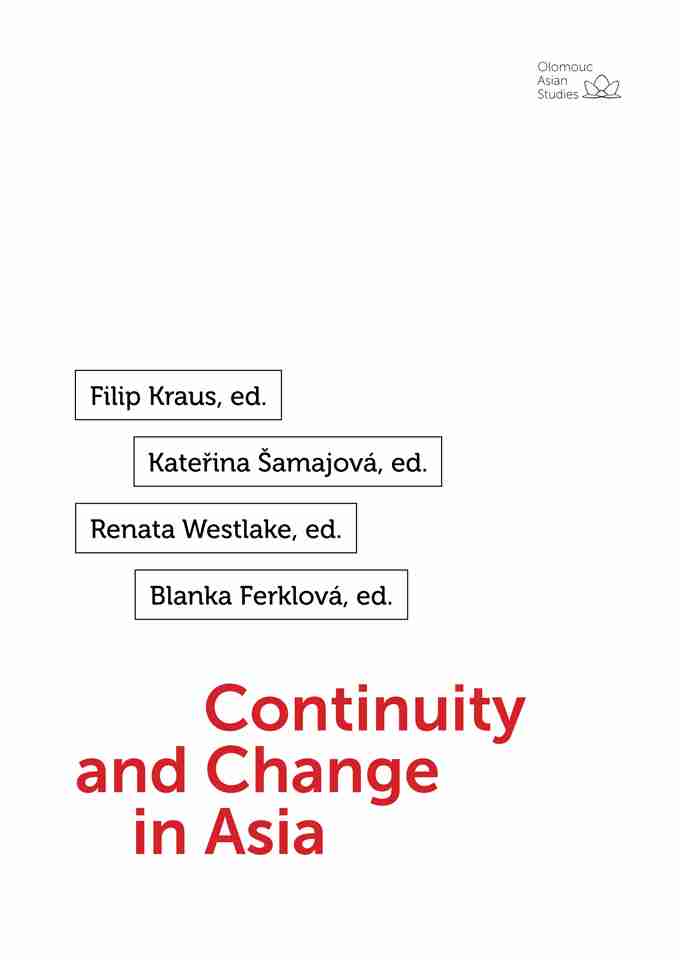
The theme of ‘continuity and change’ is generally acknowledged as an important and a highly complex problem. Asia is considered as one of the most dynamically changing parts of the worlds. The quick economic, political and socio-cultural changes are generating interesting topics in those scholarly fields such as anthropology, ethnography, linguistics and literary studies, or in other fields of social, political and economic science. Especially after the years of anti-Covid 19, measures it is important to understand what remains stable or what had been changed and may be lost forever.
More...
The book is the first comprehensive attempt to present complex problems in the Polish-Belarusian relations embedded in a broad international context. Political changes and the transition in Central and Eastern Europe after 1989 initiated the establishment of diplomatic relations with the countries of the former Eastern bloc as well as with those which regained independence after the fall of the Soviet Union. In this group of issues, the relations with Belarus did not come to the forefront, and their subsequent phases were characterized by alternating attempts at dialogue, interspersed with periods of regression and mutual suspicion. The most dramatic period was from 2020 to 2023, when Belarus, inspired by Russia, caused a migration crisis on the border with Poland, and then became involved in the Kremlin war against Ukraine.
More...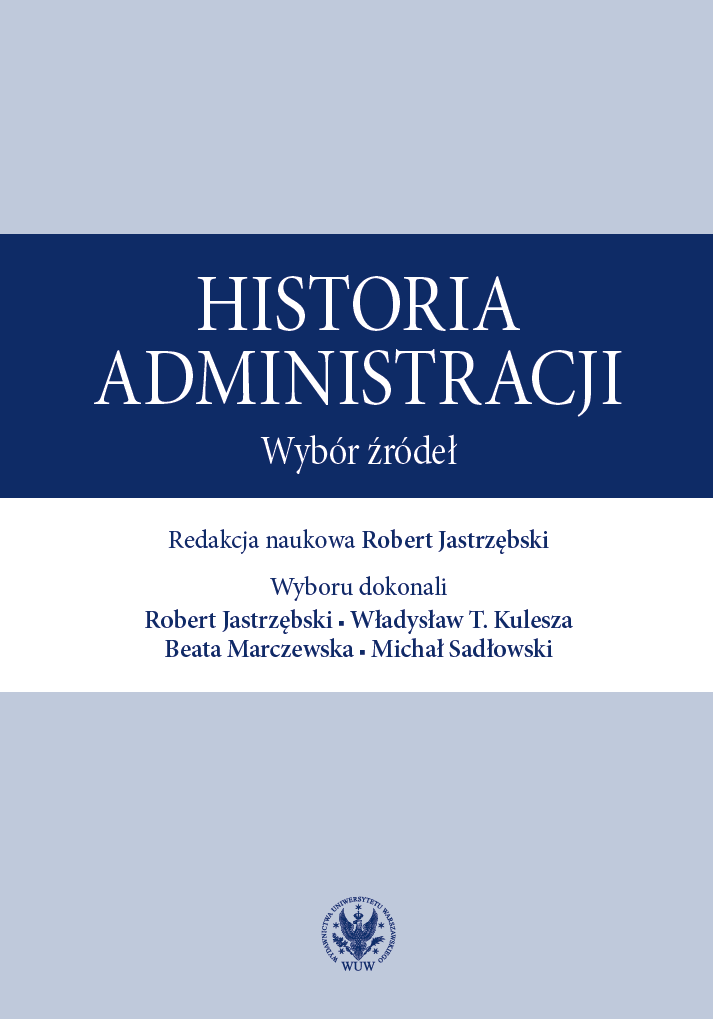
The collection prepared by the group of researchers and educators from the Faculty of Law and Administration of the University of Warsaw contains legal acts from the history of administration of the Polish state and countries such as: Austria, Prussia and Germany, Russia and USSR, France, England and the United States, whose legislation had a relevant impact on the state legal system and administrative and legal solutions in force on Polish lands. The first part of the publication consists of documents regarding the system and administration of countries other than Poland. The second part discusses the regulations regarding the Polish state, including its constitutional law, government administration, local government and non-territorial self-government, administrative judiciary and legal protection bodies, as well as official law and administrative procedure. Such perspective makes it possible, among others, to track changesin the process of ruling a country and functioning of an autonomy, and thus facilitates understanding of contemporary solutions.
More...
The author of the monograph discusses the jurisprudence of constitutional courts of selected countries of Central and Eastern Europe: the Republic of Poland, the Republic of Lithuania, the Czech Republic, the Slovak Republic and the Republic of Croatia. He also undertakes an assessment of its impact on the formation of basic (constitutional) principles of financing local governments: the principle of financial independence and adequacy of the activities of local government units and the guarantees resulting from them. Particular attention is paid to the discussion of the role of constitutional courts in determining acceptable conditions for limiting the rules in question, the reasons for breaching the rules and the criteria used by courts to determine them.
More...
Issues regarding the future of the European Union have become very important, especially in the context of political and social changes across Europe, including in Poland and Austria. The study of pro- and anti-European attitudes is becoming a key area of analysis to understand the dynamics of European societies in the face of political, economic and cultural challenges. The considerations contained in this publication focus on the period from 2015 to 2021. I focus my attention on two important countries: Poland and Austria, which, despite their different histories and experiences, have many common features. By analyzing articles published in the influential weekly magazines "Polityka" in Poland and "Der Spiegel" in Austria, I try to interpret the diverse attitudes of citizens towards the idea of a common Europe. The time caesura I have designated for the purposes of this analysis is not accidental. The year 2015 was a time of change in the Polish government, where Law and Justice gained the largest parliamentary club in the history of the Third Polish Republic. In Austria, in 2017, the Christian Democrat ÖVP won the elections. The key aim of my research is to identify pro- and anti-European trends and to understand the main factors shaping these attitudes. What political, social and economic events influence the perception of the European Union? What are the main narratives in the Polish and Austrian media in the context of European events? I made the answers to these questions the content of the book. Based on C. Gerbner's method of content analysis of media messages, the research focuses on identifying differences and similarities in the approach of political actors to European issues. I also analyze the role of the media in shaping pro- or anti-European attitudes. In the results of the content analysis of the analyzed weekly magazines, I try to show the complexity of citizens' attitudes and their evolution in the period under study. This book is an attempt to answer the question about the shape of the official discourse of parliamentary parties on topics related to European integration and the European Union itself. The analysis is carried out through the prism of two levels: the idea of Europe and the organization of Europe (understood as the organizational structure of the EU and the way it will function in the future).
More...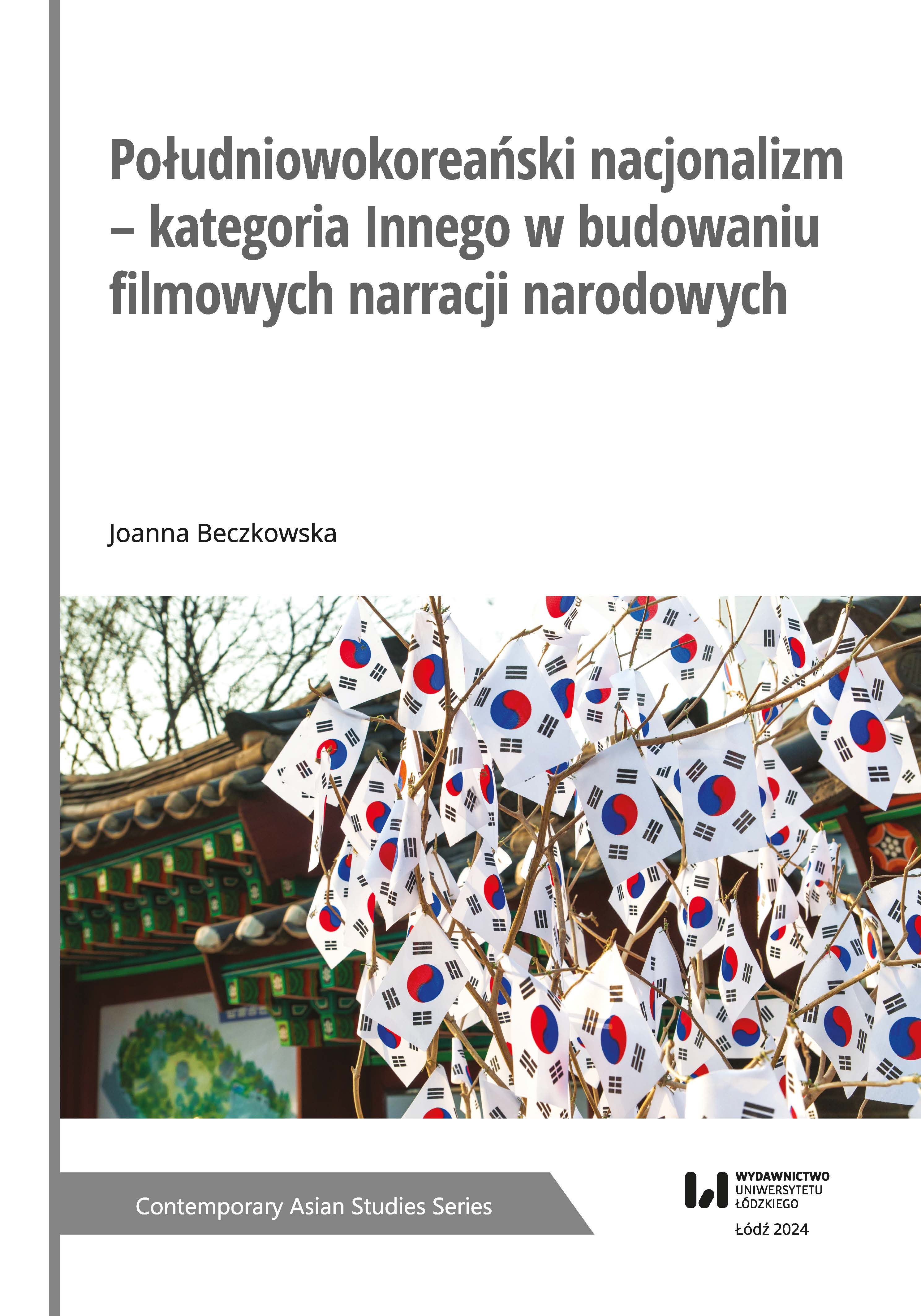
This study focuses on the role of the "Other" in shaping nationalism and national identity through a case study of South Korea and its relations with North Korea and Japan. The main goal is to identify, characterise and analyse the different roles assigned to neighbouring countries in the process of constructing South Korean national identity. The research focused on film narratives, which have a significant impact on shaping collective memory and national identity and constitute an important political and ideological tool. In South Korea, policy is shaped not only by rational factors but also in relation to two "Significant Others" - Japan and North Korea. In such a situation, emotional factors play a role in decision-making. Moreover, having two “Significant Others” and two identities – Korean and South Korean – complicates international relations. With Korean identity, South Korea should strive for unification with the DPRK while at the same time feeling the need to come to terms with the colonial period, which generates conflict with Japan. However, for the South Korean identity, the greatest threat is North Korea - also in the sense of symbolic legitimisation of Korean power and representation. This identity requires striving for domination over the DPRK and encourages cooperation with Japan based on shared values. Having two identities defined in relation to two different "enemies" means that the ROK's policy towards Japan and North Korea changes frequently. Identifying and characterising the roles that these states play as Significant Others in South Korean national narratives becomes a useful tool in analysing South Korea's behaviour in the international arena.
More...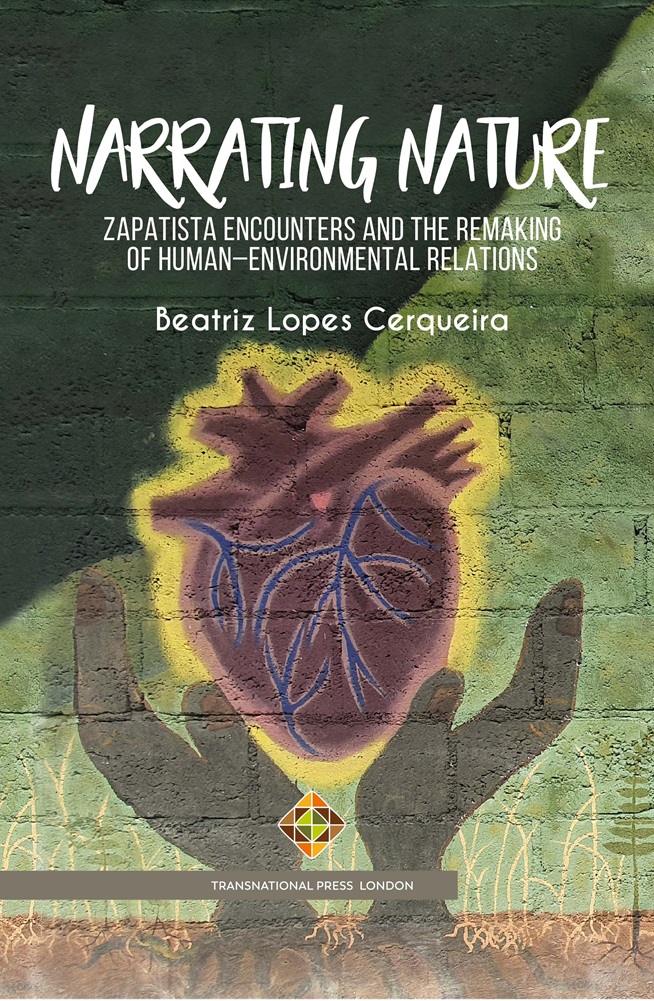
In the light of increasing environmental degradation and the climate crisis, among others, and the intertwined augmented pressures on the global population’s well-being, human-Nature relationships have become a topical issue. These relationships are intrinsically politico-ecological, currently shaped by capitalist-modernity that functions based on extractivism. Therefore, it is imperative to shift towards more caring human-Nature relationships, which are being developed in and through political counter-movements. Taking the Zapatista movement as an example, this book explores other ways of thinking and acting towards Nature that allows for the development of non-exploitative human-Nature relationships. It follows the argument that the Zapatista fight is a politico-ecological one, in which the movement’s political aims and decisions are grounded in a Mayan-derived, indigenous worldview of Nature and in their influence in defining more caring human-Nature relationships; and that, therefore, their fight is also expressed through the ways they put these relationships in practice, particularly in their ways of doing agriculture (through agroecology, based on values such as care, respect, and democracy). In turn, these help to guarantee not only their resistance to the dominant extractivist system, but also their autonomy, the main aim of the civil part of the Zapatista movement.
More...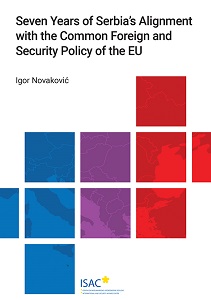
The topic of Serbia’s foreign policy alignment with the European Union (EU) is one of the politically most challenging aspects of Serbia’s negotiations with the Union. The Union defines its foreign policy course based on decisions taken by the European Council which sets the long-term course, but also on decisions taken by the Council of the European Union (Council’s foreign policy format composed of foreign ministers of EU member states). The decisions of the Council of the European Union are made public through foreign policy declarations issued on behalf of the EU by the High Representative of the Union for Foreign Affairs and Security Policy. EU foreign policy declarations can either be announcements of position concerning a certain international situation or event and/ or announcements of measures that the EU adopts targeting certain countries, individuals or entities. Such declarations normally require alignment of partner countries (candidate countries, potential candidate countries, countries in the Eastern Partnership Programme and member countries of the European Economic Area).
More...